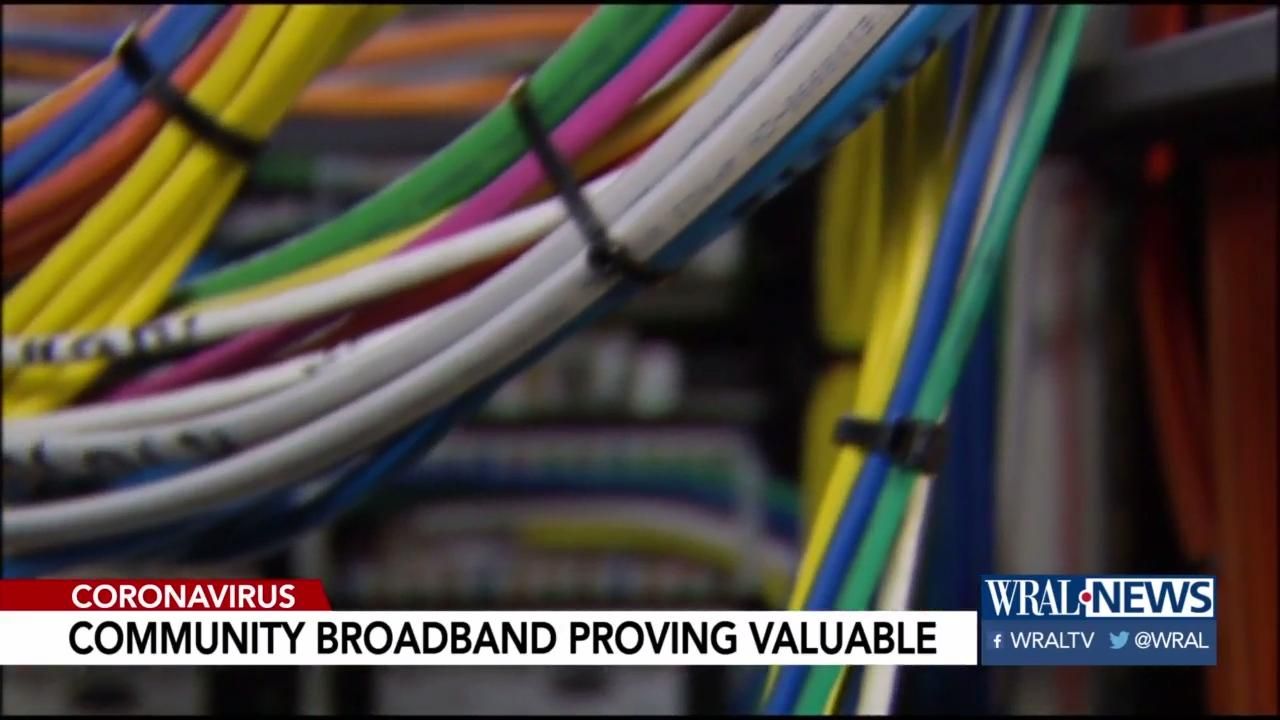MARY-ANN BALDWIN: FCC policies on 'bulk billing' must keep broadband affordable

EDITOR'S NOTE: Mary-Ann Baldwin has been mayor of Raleigh since 2019. Prior to that she served on the Raleigh City Council from 2007 through 2027.
Broadband access is now a necessity. It’s why I’ve referred to it before as the next generation of economic development infrastructure. It’s undeniable that Americans improve their economic prospects by having a stable connection, whether for job opportunities, learning, or accessing critical information. Because of this, it’s been greatly encouraging to see the monumental advancements we’ve made in getting more people online thanks to the bipartisan laws that President Joseph Biden has been able to pass. That includes the bipartisan Infrastructure Law, which made historic investments in both broadband infrastructure and broadband affordability initiatives like the Affordable Connectivity Program.
Policies on all levels of government should build on this progress until every American has the connection they need. But I have serious concerns that a recent Federal Communications Commission proposal to ban bulk billing agreements for broadband would severely hinder this effort - doing the opposite of its intended effect to lower broadband costs and boost competition in the broadband marketplace.
If you are one of the 75 million Americans -- or roughly 2.8 million North Carolinians -- living in a homeowners association (HOA) or condominium owners association (COA), there is a good chance you currently benefit from lower monthly broadband prices due to a bulk billing agreement. These are agreements in which representatives from an HOA, COA or other multi-tenant living environment negotiate with an internet service provider on a deal to provide internet service to an entire living community. In return, customers receive a significantly reduced cost for their bill, often saving up to 50% on what they’d pay for an individualized purchase of their internet service.
While the Federal Communications Commission (FCC) hopes to lower broadband costs with its newest proposal, a 2010 finding from the FCC reflects how for the majority of Americans, bulk billing agreements are good. That report, published by the FCC during the Obama Administration, revealed bulk billing “predominantly benefits consumers, through reduced rates and operational efficiencies, and by enhancing deployment of broadband.” The FCC then highlighted that the benefits of these arrangements far outweigh the drawbacks.
So why is the FCC proposing to get rid of these consumer-friendly deals? In my view it is a case of well-intentioned policy, but flawed, overly broad execution.
The FCC’s proposal comes on the heels of the Biden Administration’s much-needed effort to eliminate junk fees for American consumers. This initiative will do incredible good for Americans’ bank accounts, whether by getting rid of some hidden costs that pop up when you try to purchase tickets to a concert or sporting event, or the automatic charges many college students get from universities for textbooks they could buy for far cheaper prices elsewhere.
In the case of the FCC’s proposal to ban broadband bulk billing, the intent is to hold a select few bad actors accountable. In some cases, apartment complex owners are not transparent with their tenants regarding the bulk billing agreement they’ve secured, charging them extra to make a profit.
This is clearly wrong, and the FCC is right to go after those who abuse their power. But the flaw with the FCC’s proposal is its expansive scope. Why would we infringe upon the negotiating power of an HOA representative who lives in the community they are bargaining on behalf of, who is genuinely trying to save themself and their community significant money each year through a bulk billing agreement?
In Raleigh, we have a wide array of residents reaping huge savings from these agreements. It includes folks in HOAs and COAs, seniors living on a fixed income in multi-tenant communities who rely upon lower costs to stay financially stable in retirement and college students whose student housing provides them with a stable connection at a lower price on day one of school. By eliminating bulk billing, the FCC could threaten the connectivity of all these residents and put our nation at risk of widening its digital divide.
That’s why I’m urging the FCC to reconsider this well-intentioned yet miscalculated proposal. We can and should hold bad actors accountable, but we don’t need to make broadband more costly for millions of Americans in the process.
Capitol Broadcasting Company's Opinion Section seeks a broad range of comments and letters to the editor. Our Comments beside each opinion column offer the opportunity to engage in a dialogue about this article. In addition, we invite you to write a letter to the editor about this or any other opinion articles. Here are some tips on submissions >> SUBMIT A LETTER TO THE EDITOR









